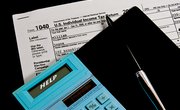
When you change employers you must decide what to do with your 401k retirement account. One option is simply to leave it with your former employer. That way, you avoid tax and penalty complications and you can stay with the former plan’s favorable investment options. Apart from uneasiness over leaving your future retirement income in the hands of a former employer, there are specific drawbacks to leaving your 401k account in place.
Poor Service
The benefits departments of companies will concentrate on the 401k needs of current employees. The service level for former employees is likely to fall off. Current employees will be kept current on plan changes but you and other former employees may be out of the communications loop. That means you may not be notified of 401k plan changes such as different investment options or new administrative procedures. Your former employer views you as a 401k administrative cost to be gotten rid of if possible. If your account is small, under $5,000, many 401k plans automatically close out your account. Some plans also require fiormer employees to exit the program via cashout or rollover when you reach age 62 or some other retirement age specified in the plan.
Investment Restrictions
By leaving your funds in a former employer's 401k plan, you are restricting your investment choices. Most 401k plans limit your investment options to a preselected list of mutual funds plus one or two fixed-return options. By doing a tax-free rollover of your account into an individual retirement account, or IRA, you can choose investments that most 401k plans put off limits such as foreign mutual funds, stock options, exchange-traded funds, real estate and individual stocks and bonds. You also have a virtually unlimited choice of mutual funds and gain the ability to customize your investment mix as you approach retirement age.
Moves and Changes
Over time, your former employer may undergo business changes. The company could be acquired, merge, reorganize or even go out of business. These changes may affect how you get access to your account. As a former employee you might not be notified of new access procedures. Also, if you move to a new location it’s your responsibility to keep the benefits department at your former company apprised of your current address. They don’t have to keep track of former employees.
No Contributions
Many plans bar any new contributions to a 401k once you have left an employer’s service. That means you won’t get any more account growth or tax deductions from 401k contributions. Also, as a former employee, you can’t take out a loan against the balance in your 401k account. Most plans require that you repay 401k loans through a payroll deduction. As a former employee, you have no way to make your loan repayments. If you have a loan outstanding at the time of your separation, most plans will treat the loan balance as a distribution to you unless you can immediately repay that balance.
References
- 401k Help Center.com: Between Jobs? That’s the Time to Safeguard Your 401k
- Wall Street Journal.com: 401k vs. IRA, Suzanne Barlin, Dec. 2, 2008
- Internal Revenue Service. "401(k) Plans - Deferrals and Matching When Compensation Exceeds the Annual Limit." Accessed May 18, 2020.
- Internal Revenue Service (IRS). "A Guide to Common Qualified Plan Requirements." Accessed May 18, 2020.
- Internal Revenue Service. "401(k) Plan Overview." Accessed May 18, 2020.
- Vanguard. "How America Saves 2019: The Retirement Savings Behavior of 5 Million Participants." Accessed May 18, 2020.
- Internal Revenue Service. "Income ranges for determining IRA eligibility change for 2021." Accessed Oct. 29, 2020.
- Internal Revenue Service. "2021 Limitations Adjusted as Provided in Section 415(d), etc." Accessed Oct. 29, 2020.
- Internal Revenue Service. "Retirement Topics - Exceptions to Tax on Early Distributions." Accessed May 18, 2020.
- United States Congress. "Text: H.R.748 — 116th Congress (2019-2020) Sec. 2202." Accessed May 18, 2020.
- Internal Revenue Service. "Retirement Topics — Required Minimum Distributions (RMDs)." Accessed May 18, 2020.
- Internal Revenue Service. "Rollovers of Retirement Plan and IRA Distributions." Accessed May 18, 2020.
- Internal Revenue Service. "Retirement Topics - Plan Loans." Accessed May 18, 2020.
Writer Bio
Herb Kirchhoff has more than three decades of hands-on experience as an avid garden hobbyist and home handyman. Since retiring from the news business in 2008, Kirchhoff takes care of a 12-acre rural Michigan lakefront property and applies his experience to his vegetable and flower gardens and home repair and renovation projects.

